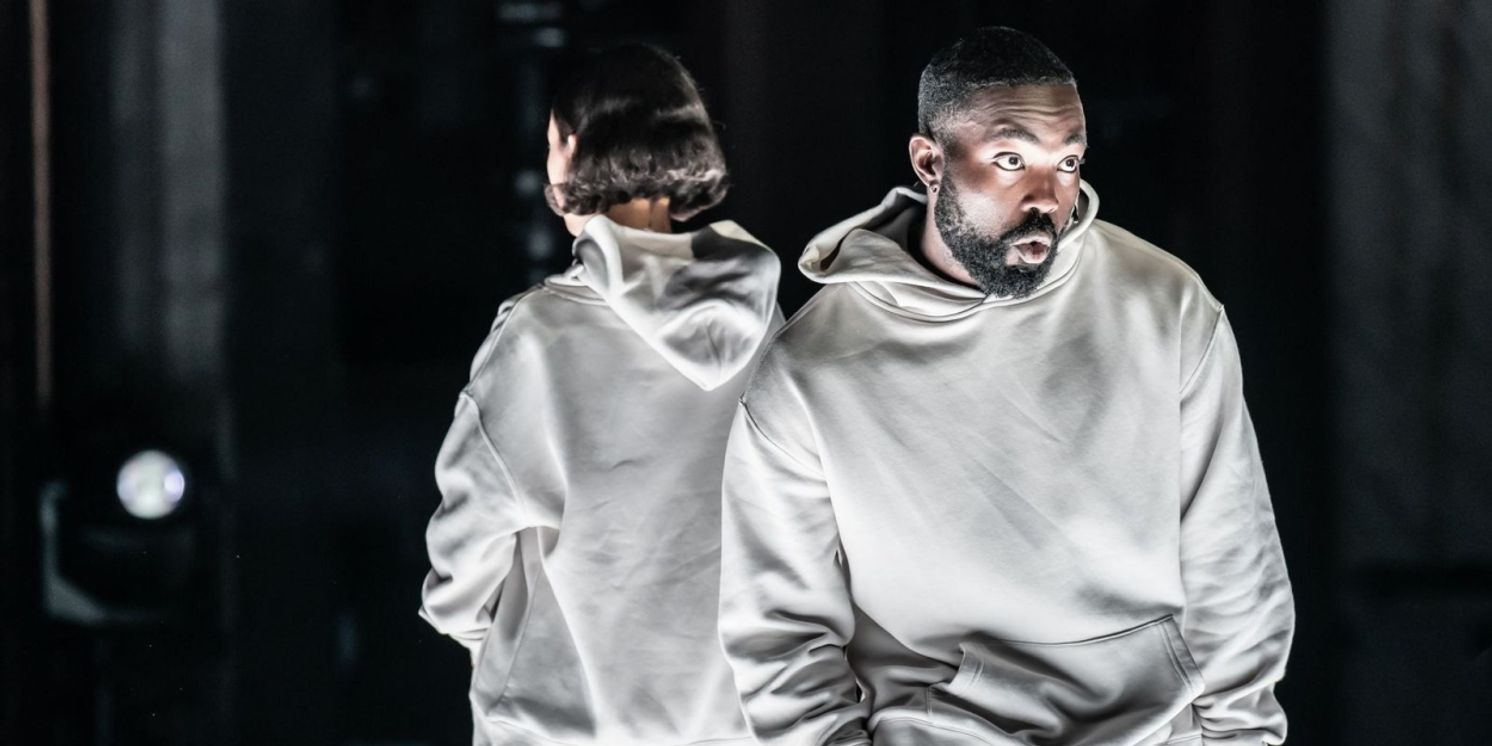Review: THE EFFECT, National Theatre
A star-filled creative team revive Lucy Prebble's 2012 play

![]() The central hypothesis put to the test in The Effect is that emotional states are matters of brain chemistry. Dopamine imbalance in one direction results in depression. Too much the other way and you’ll be susceptible to falling in love. Romance is therefore illusory. Perhaps this isn’t the one for date night.
The central hypothesis put to the test in The Effect is that emotional states are matters of brain chemistry. Dopamine imbalance in one direction results in depression. Too much the other way and you’ll be susceptible to falling in love. Romance is therefore illusory. Perhaps this isn’t the one for date night.
Wunderkind director Jamie Lloyd’s new production surgically renders out the heavy contrasts in Lucy Prebble’s award-winning 2012 play. On the aesthetic level it is ruthlessly monochrome. Tristan and Connie, Paapa Essiedu and Taylor Russell, are test subjects who meet whilst on a clinical drug trial. They are clad in white whilst the constantly onlooking psychiatrists pulling the strings are in black. Slick but stark lighting freezes them in medical iciness. Yes or no. Zero or one. Subject or object.
Lloyd, who has a comfortable career helming awards-friendly shows between the West End and Broadway, again employs his now trademark stripped back visuals. Somehow simultaneously austere and flashy, the aesthetic can be divisive. Here it thrillingly clears the way for immense warmth to bleed through the gap between what we see and what we are told.
The two fall gorgeously in love; the administrators wonder if it is a side effect. Their seemingly organic infatuation says otherwise and palpably melts the icy clinical air. Talk about having good chemistry.
Directorial sharpness strikes hard and fast, announcing itself like a syringe jabbed into your veins. A metallic soundtrack accentuates the drama’s rhythmic punchiness. The conceptually meaty questions, that have kept philosophers awake at night since Plato, are kept easily digestible across the near two hour run time.
It is the performances that really inject it with pulsating velocity. Essiedu exudes juvenile charm, his body ebbs and flows with each giddy emotion. Russell, critically lauded in Bones and All, is in her stage debut. She is more controlled with a nebbish shyness, but her emotional defences soon crumble when he catches her eyes with his boyish grin. Both are endlessly watchable: as the dosages increase their emotions liquify into jittery violence. The eroticism bubbling beneath the frosty surfaces comes to suffocate them.
It's a shame that the script trips up towards the end. The major questions coiled at the play’s heart gradually detach from the narrative. A resulting theatrical dissonance renders the ending underwhelming and the production more interesting than entertaining. But despite its imperfections the decision to revive The Effect is a laudable one.
I suspect when the play premiered audiences thought they were looking into a crystal ball at a dystopian vision of a Huxleyan future. Now we look into a mirror, but the image remains the same. Our indescribably complex emotional lives are categorised and quantified by omnipresent and omniscient algorithms. Apps know us better than we know ourselves and the mental health epidemic is worse than ever. Eleven years ago The Effect was once prophetic. Now it is just life.
The Effect runs at The National Theatre until 7 October
Photo credit: Marc Brenner
Reader Reviews
Videos

